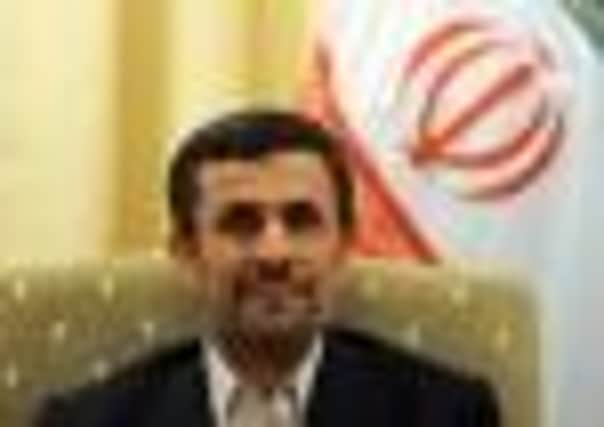Analysis: Gleams of hope for diplomatic solution to Iran’s nuclear threat


There has been spin and posturing from both sides. Iran’s populist president, Mahmoud Ahmadinejad, warned yesterday that anyone seeking to violate his country’s nuclear rights “will get a blow to the mouth so bad they will forget the path to their homes”.
He maintained that Iran’s economy could survive without selling a single barrel of oil “for two or even three years”.
Advertisement
Hide AdAdvertisement
Hide AdEven so, there are grounds for cautious optimism. Both sides have floated intriguing balloons as they jockey for position.
Iran signalled this week it may be prepared to compromise over its stockpile of 20 per cent enriched uranium, a key issue for the West because that level of purification is a simple step away from producing 90 per cent bomb grade fissile material.
The US, meanwhile, hinted it could accept Iran’s enrichment of uranium to below 5 per cent in return for verifiable guarantees that no material is diverted to military use.
Recent remarks by Iran’s absolute supreme leader, Ayatollah Ali Khamenei, have piqued Washington’s interest. The hardline cleric offered rare praise of the US last month, commending president Barack Obama for denouncing “loose talk of war” by Israel and his Republican rivals over the nuclear stand-off.
The ayatollah also pledged his country would never seek nuclear weapons, describing them as a “grave sin”.
Mr Obama reportedly sent him a verbal message via Turkey’s prime minister, Recep Tayyip Erdogan, saying that if he could back up that claim, the US would accept an Iranian civil nuclear programme.
“For this to be of value to the Iranians, which Obama clearly hopes it will, it must imply that he can accept enrichment for civil purposes,” said Peter Jenkins, a British former ambassador to the International Atomic Energy Agency, the UN’s nuclear watchdog. “Keeping a capability to produce nuclear fuel is essential for Iran,” he added in an interview.
Iran’s leaders have invested much national and personal prestige in their country’s civil nuclear programme, which Iran insists it has a right to develop under the Nuclear Non-proliferation Treaty.
Advertisement
Hide AdAdvertisement
Hide AdIran will expect an easing of sanctions in return for any significant concessions. It will also require guarantees that the US is not seeking regime change, a fear that drives Iran’s alleged pursuit of a nuclear weapons capability.
Beyond the nuclear issue, Iran wants acceptance of what it deems its rightful role as a leading regional power that should be absorbed into security structures in the Persian Gulf, rather than being isolated.
It will also expect to be treated with respect as an equal in the nuclear negotiations rather than, as Mr Jenkins put it, “be made to feel like criminal suspects given an opportunity to engage in plea-bargaining”.
He said the “scope for any process to be derailed by distrust, misunderstanding and political in-fighting remains formidable”.